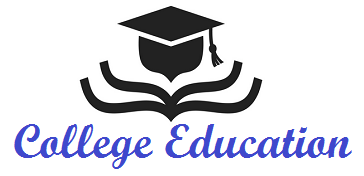Tutors play a crucial role in education by providing personalized support and guidance to learners of all ages. They come in various forms, each with unique attributes and areas of expertise. Here, we’ll explore different types of tutors, from traditional classroom teachers to online instructors and specialized subject matter experts.

Here are some common types of tutors;
Peer tutors: Peer tutors are students who assist their peers in understanding and mastering course material. Educational institutions or volunteers may assign them to help fellow students. Peer tutors often bring a relatable perspective and can offer insights based on their own recent learning experiences.
Homework help tutors: Homework help tutors UK offers support to students in completing assignments projects, and understanding class materials. They may also reinforce concepts covered in class and provide additional explanations or examples.
Group tutors: Group tutors work with small groups of students simultaneously. This approach encourages collaboration, discussion, and peer-to-peer learning. Group tutoring is often employed in test preparation or study groups.
Life skills tutors: Life skills tutors focus on practical skills needed for everyday living, such as budgeting, time management, cooking, and organization. They equip individuals with the tools to navigate various aspects of life independently.
Apps tutors: With the rise of online education, various platforms and apps offer automated or AI-driven tutoring. These can provide interactive exercises, quizzes, and explanations to aid learning.
Classroom teachers: Classroom teachers are often the first–a level biology tutor students encounter. They teach a particular subject or grade level and work within the formal education system. They provide instruction to a group of students in a physical classroom and follow a standardized curriculum. Classroom teachers offer a broad range of knowledge and experience in their subject areas.
Adult education tutors: Adult education tutors work with learners beyond the typical school age. They may help adults learn new skills, earn a GED, or pursue higher education. These tutors offer flexible schedules and a patient approach tailored to the unique needs and experiences of adult learners.
Online tutors: Online science tutor utilize digital platforms and communication tools to deliver instruction remotely. They can teach a wide range of subjects and cater to students from different geographical locations. Online tutoring provides flexibility and convenience for both the tutor and the student.
Music tutors: Music tutors are skilled in teaching musical instruments, voice, theory, or composition. They help students develop technical proficiency, musicality, and an understanding of music theory. Music tutors may work with beginners, intermediate players, or advanced musicians.
Career or professional development tutors: These biology tutors assist individuals in honing specific skills or knowledge related to their career goals. They may help with resume building, interview preparation, and skill development in areas like coding, project management, or public speaking.
Fitness and wellness tutors: Fitness and wellness tutors guide individuals in achieving their health and wellness goals. They may be certified personal trainers, yoga instructors, or nutritionists, providing tailored plans for physical fitness, mental well-being, and nutrition.
Final Thoughts
Tutors come in various forms, each specializing in a particular area of education or personal development. Their expertise and tailored approach make them invaluable resources for learners seeking to enhance their skills and knowledge. Choosing the right type of tutor depends on the specific needs and goals of the individual seeking assistance.





